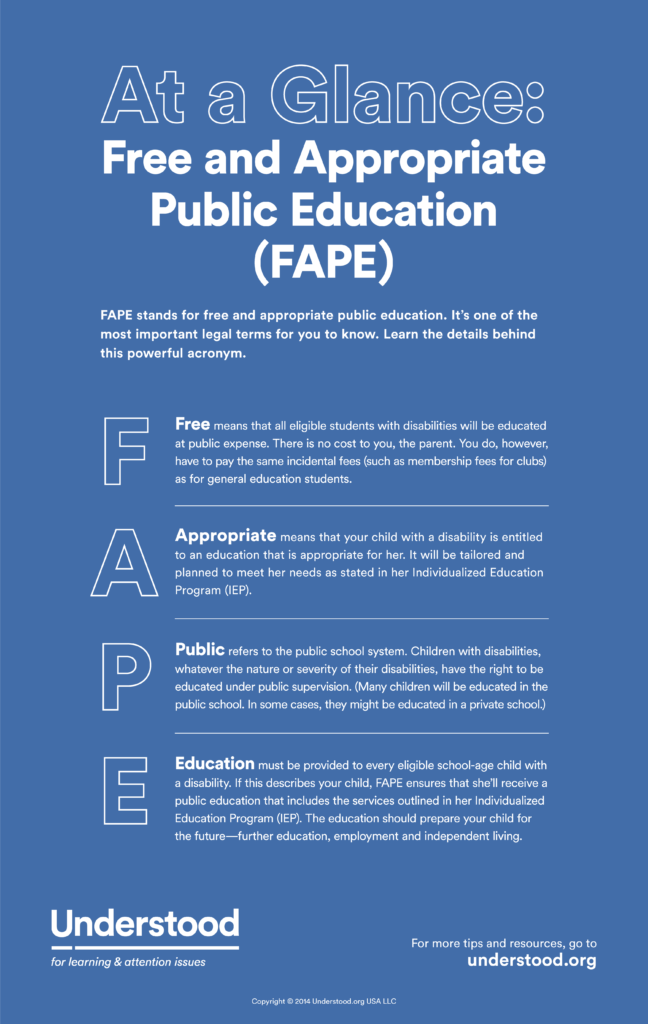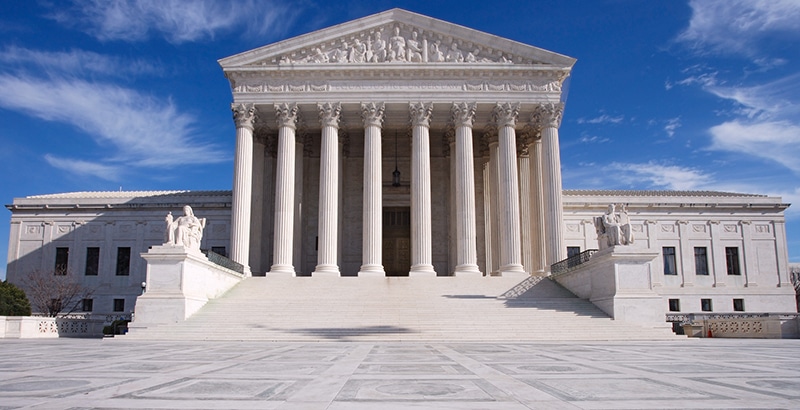A nation’s greatness is measured by how it treats its weakest members.”
~ Mahatma Ghandi
In my legal representation of families who have children with severe disabilities, I have observed their extreme difficulties. My law practice focuses on claims that negligence, malpractice, or vaccine injury cause severe disabilities of all kinds in children and adults.
On occasion, I have represented families before school districts, fighting for appropriate educational supports for special needs children. These education law cases are among the most contentious of any I have handled. And I have both prosecuted and defended homicide, racketeering, narcotics trafficking; cases that carry the most severe penalties in law. They pale in comparison with the fight that parents must wage against their school districts. That reality has always left me shaking my head in amazement and disappointment.
“A free and appropriate public education”
The playing field in which families struggle to get their kids services is governed by the Individuals with Disabilities Education Act (IDEA). Over the last several decades IDEA strengthened the 1975 Education for All Handicapped Children Act, which established the principle that a child with a disability is entitled to a free and appropriate public education.

This mandate, however, is insufficiently funded. School districts struggling with budgets train themselves in inventive ways to limit the resources devoted to special needs children. Even the wealthiest districts can take an aggressive stance in their effort to limit services to severely disabled children.
The adversarial nature of special education committee meetings rivals the most contentious negotiation or courtroom confrontation. Districts fail to keep promises to children, relying on technicality, intimidation, and subterfuge to make parents, who often lack resources, sophistication, and lawyers, go away empty-handed, with less than their child needs to make educational progress. The result is that the most vulnerable children are shortchanged.
Supreme Court upholds the high IDEA standard
Fortunately, IDEA establishes minimum standards that help to rein in the schools, and force them to provide at least basic educational services to our most vulnerable children.
Sometimes, unfortunately, the courts tilt the playing field toward the school districts. This is what happened in Colorado 2008 when a Federal court interpreted IDEA in a way that would have deprived a severely disabled autistic student of services he desperately needed.
On March 22, 2017, thankfully, an enlightened and unanimous Supreme Court balanced the field in a landmark case called Endrew. In the process of deciding Endrew, the Supreme Court effectively rebuked the Trump nominee, Judge Neil Gorsuch, who may soon join the Court’s ranks. In doing this, the Supreme Court highlighted Gorsuch’s institution-centric and people-antagonistic judicial bent.
Gorsuch tried to diminish the IDEA standard
The controversy leading to the Supreme Court’s Endrew opinion started with the opinion by Gorsuch in the Thompson School District case in the U.S. Court of Appeals for the Tenth Circuit.
In the Thompson case, the school district failed to provide Luke, a child with autism, with the educational services guaranteed to him by the Individuals with Disabilities Education Act. As parents by the tens of thousands will recognize, Luke had trouble generalizing skills learned in the school setting to his home and other places. Luke’s parents asserted that because of the severity of the Luke’s disability, only a private residential school could provide him with an adequate education.
Luke’s parents withdrew him from the public school to enroll him in a private residential program. They sought reimbursement of Luke’s tuition costs from the school district, but the school district refused. A Colorado administrative agency decided that although Luke had been making some progress in his IDEA goals in the public school setting, this progress was not sufficient to justify the school district’s refusal to reimburse Luke’s parents for the private residential school tuition. The school district then sued Luke’s parents, contesting the order to pay the private school tuition, but the Federal District Court agreed with the administrative agency decision.
“Merely” more than de minimis
Gorsuch, writing for the 10th Circuit Court of Appeals, reversed the agency and District Court decision, denying reimbursement to Luke’s parents. Gorsuch found that because Luke had made some educational progress in the Thompson school district, the district was in compliance with IDEA. Gorsuch found that it was sufficient if Luke had made any progress at all, even if barely more than minimal.
In favoring the Thompson School District, Gorsuch belied the claim that he is a strict constructionist who applies the letter of the law. He misapplied the IDEA standard that requires school districts to provide “more than de minimis” educational benefit. Instead, Gorsuch applied a different, “merely” “more than de minimis” standard. Here is what he wrote:
… we have concluded that the educational benefit mandated by IDEA must merely be “more than de minimis.”[i]
The word merely, added to the “more than de minimis” IDEA standard by Gorsuch, operated to reduce the standard below what IDEA mandated. Remarkably, that is not my opinion, but was the subject of the March 22, 2017, Endrew Supreme Court Opinion. In a powerful irony, the Endrew opinion was issued at the very same time Gorsuch was declining to answer most of the questions posed to him by Members of the Senate Judiciary Committee in a confirmation hearing.
SCOTUS set Gorsuch straight in Endrew
In the Endrew oral argument, Supreme Court Justices queried who put the word “merely” in the IDEA standard, as originally it was not there. The Justices discovered it was Gorsuch and his Appeals Court colleagues who had inserted the word “merely.” The Supreme Court unanimously rejected this improper modification of the law.
Gorsuch had adopted, in inserting the loaded word “merely”, an interpretation of IDEA that provided the lowest possible standard of educational services to disabled children. Gorsuch imposed a standard below the more than minimal standard mandated under IDEA: he said it was “merely” more than minimal, suggesting a standard even lower than the low bar provided for disabled children under IDEA.
Here is the Supreme Court Justices’ colloquy from Endrew about the “merely” standard, used by Gorsuch in his 10th Circuit decision:
JUSTICE KAGAN: And de minimis is not enough, you know. It’s “merely de minimis.”
To be fair, ideological supporters of Gorsuch have argued, notably in the conservative National Review, that Gorsuch was “merely” applying the standard that was established by Tenth Circuit precedent, so he was “merely” following the law in an area left unresolved by the Supreme Court of the United States.
Gorsuch no doubt maintains he was following precedent. When it comes to disabled children, however, just following precedent isn’t sufficient, especially when the presumed precedent actually modified the standard established by the language of the IDEA statute. When it comes to political or judicial actions affecting disabled children, we must adopt a zero-tolerance approach, applied uniformly and transcending political or ideological allegiances.
“IDEA standard is markedly more demanding”
It was Chief Justice Roberts, no liberal ideologue, writing for a unanimous Supreme Court in Endrew, who critiqued the idea that a “merely” gloss should diminish the “more than de minimis” standard. Chief Justice Roberts found the IDEA standard “is markedly more demanding than the ‘merely more than de minimis test applied by the Tenth Circuit.“ Indeed, Roberts added, Gorsuch’s approach would effectively strip many disabled students of their right to an education. Roberts elaborated:
When all is said and done, a student offered an educational program providing “merely more than de minimis” progress from year to year can hardly be said to have been offered an education at all. For children with disabilities, receiving instruction that aims so low would be tantamount to “sitting idly . . . awaiting the time when they were old enough to ‘drop out.'”
Protect the rights of children with disabilities
My uncle, the late Harry Kamish, was part of a vanguard of Bronx, New York parent activists who organized themselves in the late 1940’s to combat the deficien (i.e., shamefully absent) educational services for developmentally disabled children.
Back then, the public schools offered nothing for special education students. In fact, such students were, in effect, expelled from public schools after the 8th grade. It was from this retrograde public school environment that finally, decades later, parents pushed the law to require public schools to, at least, provide a more than minimal education. Not a “merely” more than minimal education.
It is only through zealous parent activism that we have ever combated the powerful, who never shy away from doing the least they can for our most vulnerable people.
Gorsuch and his Tenth Circuit colleagues, in their claimed adherence to the letter of the law, significantly diminished the standard that the law of the land, IDEA, provided for students with disabilities. “More than de minimis” became “merely more than de minimis.”
Gorsuch could not resist the opportunity to follow incorrect precedent and apply an inappropriate standard effectively lowering the statutory burden on a public institution, at the expense of individual students. Gorsuch and his colleagues saw a chance to do the least they could for the most vulnerable. By that measure, he and his colleagues diminished our society.
Thankfully, wiser minds on the Supreme Court of the United States rose in unison to the challenge to raise the bar and elevate our society by buttressing its most vulnerable. Will the Supreme Court continue America’s tradition of supporting its weakest, which truly makes our nation great, if Trump’s appointee, Gorsuch, joins the ranks of the Supreme Court?
Originally published in Disabilities Law
 Robert J. Krakow is the principal of the Law Office of Robert J. Krakow in New York City, where he has practiced for over 40 years. His focus has been on the trial of civil and criminal cases, with a specialty in representing children and adults seriously injured by vaccines. Prior to forming his firm, Bob was a prosecutor for the decade of the 1980’s with the New York County District Attorney’s office and served as Bureau Chief in the Office of the Special Narcotics Prosecutor for the City of New York. He is a community organizer, university lecturer, public interest advocate. Bob has founded and volunteered for many not-for-profit organizations, including serving as Chair and Board Member of Lifespire, a 65 year-old NYC organization that serves 5,000 disabled people every day. Bob has lectured and testified on the subjects of vaccine injury, vaccine exemptions, and the rights of people with disabilities.He founded and/or serves/served on the boards of many prominent autism and vaccine safety advocacy organizations. Bob serves on the boards of the Center for Personal Rights and Health Freedom Action.
Robert J. Krakow is the principal of the Law Office of Robert J. Krakow in New York City, where he has practiced for over 40 years. His focus has been on the trial of civil and criminal cases, with a specialty in representing children and adults seriously injured by vaccines. Prior to forming his firm, Bob was a prosecutor for the decade of the 1980’s with the New York County District Attorney’s office and served as Bureau Chief in the Office of the Special Narcotics Prosecutor for the City of New York. He is a community organizer, university lecturer, public interest advocate. Bob has founded and volunteered for many not-for-profit organizations, including serving as Chair and Board Member of Lifespire, a 65 year-old NYC organization that serves 5,000 disabled people every day. Bob has lectured and testified on the subjects of vaccine injury, vaccine exemptions, and the rights of people with disabilities.He founded and/or serves/served on the boards of many prominent autism and vaccine safety advocacy organizations. Bob serves on the boards of the Center for Personal Rights and Health Freedom Action.
Photo credit: the74Million.org













As a nation, one with the means and the technology, we have failed the most vulnerable in our society. We wage war with precision, shock & awe… I can only imagine what our country would be like if we paid the same attention to the heath and welfare of our own …
Agreed. Despite being warned for the last two decades about the dramatic increase of the number of children with severe developmental disabilities, our political leaders have failed to make preparation for their education and care. Instead, we see efforts to cut back on funding that is already adversely affecting care for people with disabilities.
“our most vulnerable” makes me think of unborn children too…i am a special ed teacher so i think children with special needs need a proper education…but if we really want to help ALL the vulnerable in our society, we must include unborn children too ❤️ our society has turned a blind eye and use language suitable to their cause….to ignore what it really is…its so very sad!! im addressing this to the bigger picture here, not to you directly ❤️ i love what you do…and its very much needed!!
I prefer School Choice over the failed IDEA law.
Also, didn’t the Parents from Colorado relocate to Boston, MA and attempt to collect moving expenses from the School board/State?
The SCOTUS were able to interpret the law and expand the definition of special needs education across the land. Sounds like a win-win.
Pull every kid out of their programs. [My sister] Kathy was on a pace bus for 4 hours her house couldn’t get ahold of her. There was another person who takes the train and on the day the Cubs had their parade, the train kicked everyone off before his stop. He had no phone and didn’t know where he lived. Luckily a good samaritan helped him out. Everything has to go right for people with disabilities and that’s what the people in charge who don’t have a disabled child don’t understand.
You are right, so many people do not understand what it means and they don’t see it. But every day, more and more people will because these kids are aging out of the system and the burden on all of us — individually and collectively — will be breathtaking.
Seriously?? This administration is finally looking into stopping Autism. Did Obama call out the vaccine industry??? As far as protection, the unborn are the least protected and are the most vulnerable!! God Bless the Neil Gorsuch!!
I applaud Trump’s forthright desire to pursue questions about vaccine safety. It is unrealistic and naive, however, to assume that his entire administration — every single nominee and appointee and inherited staff — are aligned with him. I can tell you now that this is not the case. Special interests avidly and generously grease palms on both sides of the aisle.
On this issue, the only heroes I know are the parents caring for their severely injured children. We must stop delegating our power and common sense to others. As for IDEA, it is far from perfect so let’s work on better.. but in the meantime, let’s at least deliver the spirit and intention behind it, and not merely do the very least possible for our most vulnerable.
Our collective wallet? Um, no.
He felt that was the letter of the law. Our lawmakers need to start being more clear when they write legislation so that there is no question as to the intent of the law. Thank goodness the Supreme Court recognized and ruled on the intent of the law rather than the letter.
All the schools try to do the least possible, unfortunately. And that belt has been tightening with budget cuts over the entire prior administration. Also the laws require “least restrictive setting.” Time for the legislature to promulgate better laws so judges are not blamed for upholding crap laws and children do not suffer more than they already have.